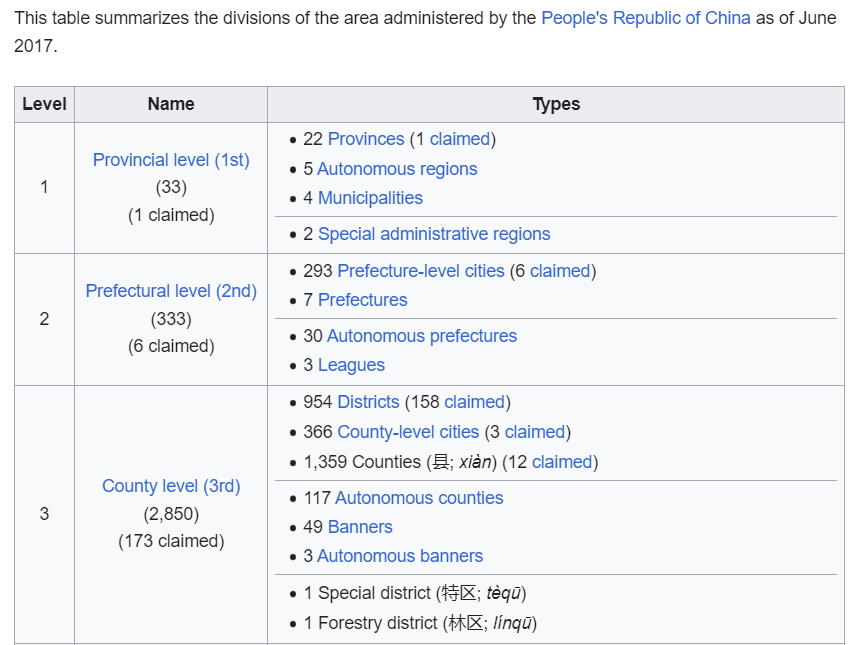Huawei's revenge: China blocks Intel, Microsoft, AMD from government computers, Plus Beijing promises investors 'confidence and peace of mind' -- China Boss News 3.29.24
Newsletter
What happened
Beijing last week announced new measures intended to block Intel and AMD computer chips, as well as Microsoft and other foreign software firms, from government computers, as Financial Times reported.
The measures come as China ramps up efforts to distance itself from Western technology and sanction-proof government operations and its economy.
An earlier set of guidelines released late last year ordered all “government agencies and party organs above township level to include criteria requiring ‘safe and reliable’ processors and operating systems when making purchases.” (Emphasis added.)
“On the same day in December, the state testing agency, China Information Technology Security Evaluation Center, published its first list of ‘safe and reliable’ processors and operating systems, all from Chinese companies. Among the 18 approved processors were chips from Huawei and state-backed group Phytium. Both are on Washington’s export blacklist,” FT staff added. (Emphasis added.)
Why it matters
Potential scale of lost business
FT analysts said that the new “state-led march away from foreign hardware,” called xinchuang or “IT application innovation,” “will dent” sales of Intel and AMD.
“China was Intel’s largest market last year, providing 27 per cent of its $54bn in sales and 15 per cent of AMD’s $23bn in sales. Microsoft does not break out China sales but president Brad Smith last year told the US Congress that the country provided 1.5 per cent of revenues,” they noted.
China’s party-state may be the largest for a single nation in all of world history.
To get a sense of the potential scale of western firms’ losses, consider this (possibly outdated) giant list of central level government agencies at Wikipedia, together with the following chart showing the number of local governments above township level as of 2017 (also from Wikipedia).
According to Britannica.com, Encyclopedia Britannica’s website, China’s massive state-controlled economy even today “requires an army of bureaucrats and a highly complicated chain of command, stretching from the top down to the level of individual enterprise." The Chinese Communist Party’s “parallel structure” bloats the bureaucracy further.
“To run the country, the government and the CCP have established roughly parallel national bureaucracies extending from Beijing down to local levels. These bureaucracies are assisted by various ‘mass organizations’—e.g., trade unions, a youth league, women’s associations, and writers’ and other professional associations—that encompass key sectors of the population. These organizations, with their extremely large memberships, have generally served as transmission lines for communicating and uniformly implementing policies affecting their members. No voluntary associations are permitted to function that are wholly independent of CCP and government leadership.”
Granted, not all these departments use Intel or AMD’s technology, and there are, likely, countless copies of pirated western software on official work computers, but the impact will certainly hurt more than a few foreign tech players.
Tech decoupling
Although China recently vowed to treat foreign firms “the same” as their domestic counterparts, tech firms - especially American ones - should expect to get the boot.
Most China business news reported by Western journalists focuses on what Biden is doing to keep American technology out of the Chinese military’s hands.
But Beijing is also looking for ways exclude its own tech ecosystem from American control. Most analysts say it is worried about being “strangled” by worsening geopolitical tensions, which Chinese leader Xi Jinping, himself, has previously stated, and that is, almost certainly, so.
But another very powerful force angling to drive American tech out of Chinese computers and, perhaps, one day out of Chinese homes, is wielded by colossal, local competitors like Huawei and state-backed Phytium.
In a Nikkei Asia piece on Huawei's "comeback” from US sanctions, Chief Tech Correspondent Cheng Ting-feng revealed how the company is now promoting itself as the home champ who will “restore China's national pride.
Bryan Ma, vice president of device research at IDC, told Nikkei Asia that the firm “is aiming high in the next two years” and his team of analysts “expect them to move upward on the back of domestic demand cheering on their hometown hero.”
Huawei executives have corralled new sources of state aid as they set their sights on winning the U.S.-China tech war.
“In response to the crackdown, Huawei began making aggressive moves into chip production, rather than just design, with the help of multiple local governments and emerging chipmakers such as PengXinWei and Shenzhen Pensun Technology (PST)… It also brought on board Fujian Jinhua Integrated Circuits, which was also blacklisted by the U.S.,” Cheng wrote.
Company leaders also have a deeply personal axe to grind - especially after founder Ren Zhengfei’s daughter and Huawei’s chief financial officer, Meng Wanzhou, was detained for two years in Canada on a US request for extradition.
Details of the many clues I’ve seen that would seem to indicate Huawei is planning to use the full force of the Chinese government to drive American tech firms out of its home market will have to wait until future posts.
But I think the timing of the company’s release of its Mate 60 Pro mobile phone containing US-banned chip technology, which coincided with U.S. Commerce Secretary Gina Raimondo’s Beijing visit last September, says a lot.
This Week’s China News
The Big Story in China Business
BEIJING PROMISES 'CONFIDENCE AND PEACE OF MIND' AT CHINA DEVELOPMENT FORUM: On Wednesday, Chinese leader Xi Jinping told a group of US CEOs that “China's economy has not ‘peaked’” and “it's growth prospects remain ‘bright,’” Financial Times reported.
The group of American business leaders that met with Xi on the sidelines of the annual China development forum included Blackstone, Inc.’s Steven Schwartzman and Qualcomm's Cristiano Amon.
Nearly 100 international executives and heads of multilateral organizations were expected to attend the greater event, including Apple's Tim Cook, ExxonMobil’s Darren Woods and HSBC’s Noel Quinn, FT staff noted in a separate report.
Keep reading with a 7-day free trial
Subscribe to China Boss News to keep reading this post and get 7 days of free access to the full post archives.





